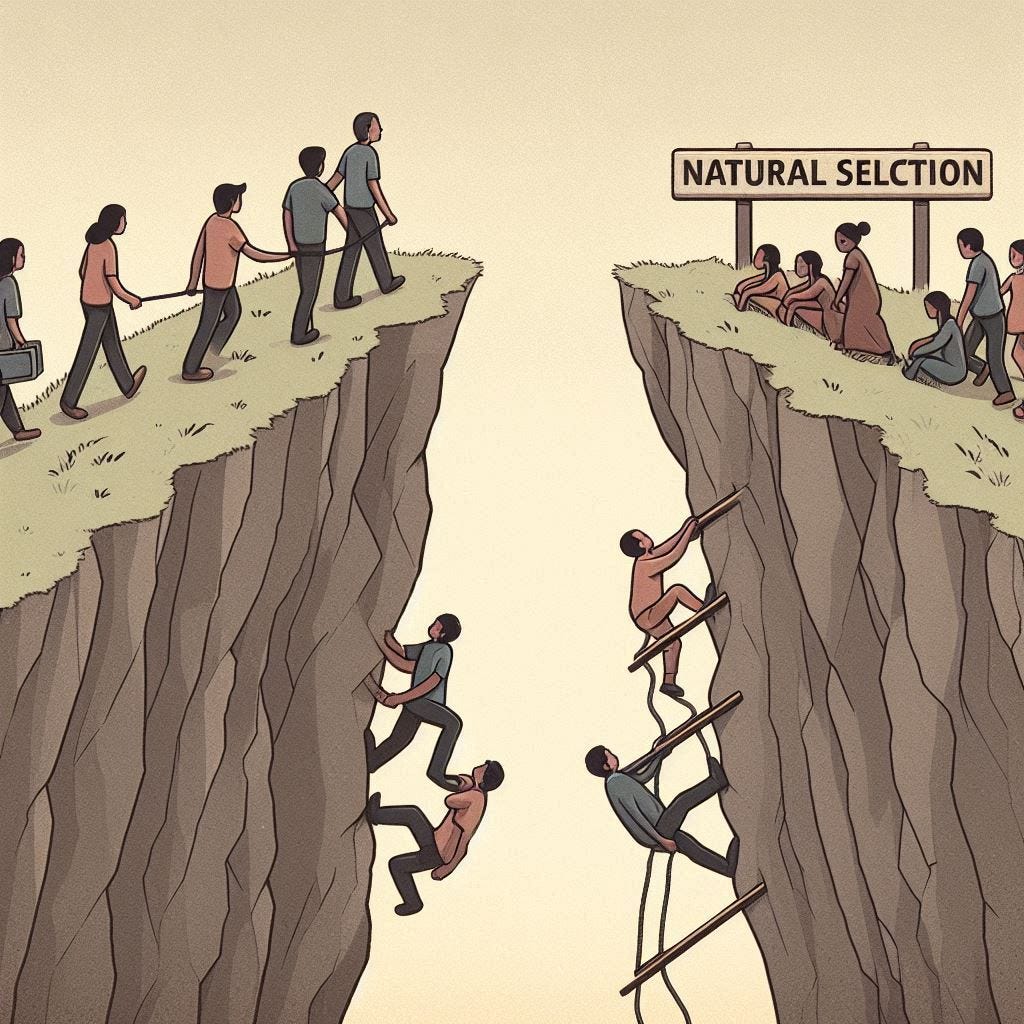Anti-Vaccination and Neoliberalism
The Philosophy of Natural Selection
Anti-vaxxers and free-market radicals have more in common than one might think. Both believe: The strong survive, the weak fall by the wayside—and that’s a good thing. Whether through viruses or market forces, what matters is that "natural selection" does its work.
This mindset stems from the social Darwinism of the 19th century. Herbert Spencer coined the term "survival of the fittest," applying Darwin’s theory of evolution to society. What works for animals must also be right for humans. Anti-vaxxers see diseases as a test for the immune system. Neoliberals view bankruptcies as just punishment for poor management. If you don’t make it, tough luck.
Kant would be rolling in his grave. His categorical imperative states: Act in such a way that your behavior could become a universal law. Imagine if "Let the weak die" became law. Such a society would destroy itself—faster than an unvaccinated child in a measles outbreak. Kant saw every human as valuable, no matter how "strong" or "weak" they were.
The modern version of this harsh philosophy comes from Ayn Rand. Her doctrine: Selfishness is good, helping others is bad. Ironically, Rand herself relied on social welfare when she was old and sick. But that’s typical: The fiercest advocates of personal responsibility soften up when they themselves need help.
The funny thing is: Both movements depend on the very system they reject. Anti-vaxxers are only healthy because others get vaccinated. Free-market radicals benefit from roads, schools, and courts paid for by the state. They’re like teenagers raging against their parents while still living at home.
The problem: You can’t reason with these people using facts. Studies on vaccine efficacy? Irrelevant. Evidence of market failures? Doesn’t matter. Because it’s not about science—it’s about ideology. They don’t want a society that protects the weak. They want a jungle where only the strongest survive.
Yet the definition of "strong" suddenly becomes flexible when it affects them personally. Then, bank bailouts are unavoidable, and seeing a doctor is no longer a sign of weakness. This reveals the truth: We’re all vulnerable. Anyone can get sick, anyone can fail. That’s exactly why we need solidarity—even if some only realize it when it’s too late.


